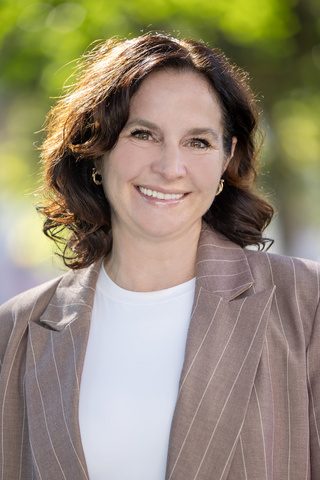The College of Liberal Arts and Sciences is making important progress in its multi-year effort to improve structure and realign resources to position the college to better serve future generations of students and faculty.
Driven by the CLAS strategic plan and outlined in a presentation that Sara Sanders, dean of the college, shared in spring 2022, the initiative identified multiple areas to assess for enrollment trends, administrative efficiency, and financial viability, to inform recommendations for restructuring and realignment. Initial areas of focus included the environment and sustainability; world languages and cultures; social justice, ethnic, and race studies; and communications. CLAS administration also identified student service centers as a focus of assessment.

The college’s progress includes two changes recently approved by the Iowa Board of Regents that will be implemented in fall 2025. The planned School of Earth, Environment, and Sustainability will combine the departments of Geographical and Sustainability Sciences; Earth and Environmental Sciences; and the Environmental Sciences program. The college will also merge the departments of German, French and Italian, Asian and Slavic Languages and Literatures, and Linguistics, along with programs in American Sign Language, International Studies, and Translation, into one Department of Languages, Linguistics, Literatures, and Cultures.
In both areas, bringing faculty and staff together into fewer departments will reduce costs and administrative duplication—delivering curriculum and teaching more efficiently, while preserving academic breadth and choice for students. Additionally, it will foster more interdisciplinary collaboration around curriculum.
“The changes we are making are cost-saving, but more importantly, will position us better for recruitment, retention, and graduation, so we can continue to be a world-class comprehensive college,” Sanders said.
The restructuring process has been aided by the college’s development in 2023 of updated collegiate criteria for academic programs and administrative units, which now provide guidelines for the minimum faculty and degree programs required to justify the structure and dedicated resources needed to maintain a department.
For all the progress being made, Sanders credits the faculty and department chairs involved in facilitating restructuring.
“The changes we’re making are informed by data and thoughtful analysis and have required some difficult decisions as we balance comprehensive excellence with responding to student demand and societal change,” Sanders said. “This progress is the result of willing collaboration among our departmental faculty and leaders. In each of these areas, they have responded constructively and creatively to the challenges, and they are strengthening our college for the future.”
Several other areas planning changes include communications; social justice, ethnic, and race studies; interdisciplinary programs; and religious studies.
“Periodic restructure and change as the world changes has been part of the growth and history of the College of Liberal Arts and Sciences since it was established in 1900,” Sanders said. “What will not change is our commitment in CLAS to our role as the heart of this institution, and to the success of our students and faculty–now, and well in the future.”